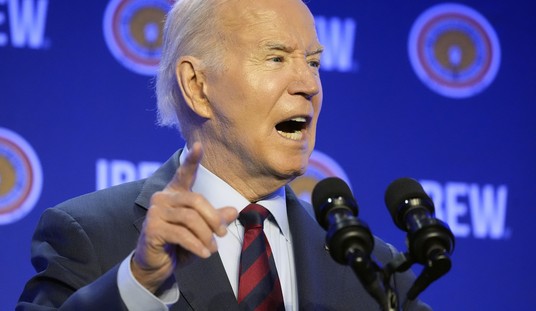
Conservatives are frustrated: why doesn’t the Republican Party deliver better results for us? Part of the answer, of course, is that the Republican Party only controls so much of the government, but there remains a lot of resistance in GOP leadership to fighting for conservative priorities. Why?
Conservatives have tended to see this as a problem to be solved my making threats: We’ll primary you! We’ll stay home! Not One Cent! We’ll go third party! In terms of asserting the legitimate supremacy of the voters over their elected representatives, these are healthy impulses. But they can never be a complete solution, because all these ideas are rule by the stick, by fear. And anyone who knows anything about managing or motivating people knows that fear alone has limits.
I submit that, if we want small-government conservatives and social conservatives to have real influence in the Republican Party, we need to go beyond the stick and offer the carrot; go beyond punishment and offer rewards. We need to prove to the leadership of the party that if they do what we want them to do, they will be richly rewarded with the things they value – advancement, re-election, fundraising, a growing caucus. Until we can offer those things, we will always be frustrated by the limits of our influence.
Let me quote here at some length from an analysis of the recall of two pro-gun-control Colorado State Senators from The Atlantic’s Molly Ball, one of the best liberal journalists in the business and a cheerleader for the gun control crowd’s “totally new strategy” only nine months earlier, as to why same-sex marriage was winning in the Democratic Party and gun control was losing:
Here’s what matters for the future of gun control: Advocates needed to send a signal that politicians could vote for gun control without fear of ending their careers. Instead, they sent the opposite message. Now risk-averse pols, already all too aware of the culture-war baggage the gun issue has historically carried, will have no incentive to put their political futures in jeopardy by proposing or supporting gun-control legislation. Indeed, it doesn’t seem far-fetched to think that gun control might go back into the policy deep-freeze where Democrats had it stowed for most of the last 10 years.
Politicians, to be obvious about it, value survival. They’re not inclined to take stands on issues that put them at odds with their constituents, and they don’t like to wade into divisive debates that rile people up but don’t win them votes. The gay-marriage campaigners I wrote about last year understood this extremely well. They spent years developing the credibility to assure politicians that if they voted in favor of gay marriage, advocates would have their back in elections….MassEquality had to convince 75 percent of the legislature, over the course of two legislative sessions, to oppose [a statewide referendum]. Only about 25 percent were with him at the beginning. But MassEquality fought to reelect every lawmaker that took its side — in the face of a major statewide Republican campaign backed by then-Governor Mitt Romney.
“We had two electoral cycles, 2004 and 2006, where we reelected every lawmaker who voted our way,” Solomon told me. “Some of these people were not easy to reelect — alcoholism, ethics issues, bad votes. Some didn’t collect enough signatures [to get on the ballot] and had to run write-in campaigns. We were determined to reelect every single one. Some of those people are now in prison, but we got them reelected.” And Massachusetts politicians learned that if you voted for gay marriage, you would have a powerful friend and ally.
***
…[T]here was still one thing [the gun control campaigners] needed to prove. They needed to prove that they could protect the lawmakers whom they coaxed out on a limb. On Tuesday, they failed that test. Future lawmakers facing similar votes aren’t going to care about the particulars; they’re going to look at John Morse and Angela Giron and think, That’s going to be me. No thanks.
Ball’s description of the predicament of the gun control crowd perfectly captures our problem. Conservatives over the past three years have shown the stick, and that gets us a hearing and in the door. Leaders like John Boehner and Mitch McConnell fear us and want to mollify us. They speak our language, and try to offer us things to get off their backs. They know that the angrier conservatives get, the more headaches we will make for them, the more of their caucus that will face primaries.
But what we don’t have is the carrot. At the end of the day, GOP leadership and many wobby GOP Congressmen and Senators don’t believe that if they stick their necks out for us, we can save them from other people they also fear. And so a hearing, and soothing words, and scraps from the table are all we get, because we cannot give them rewards for going the extra mile to do what we actually want. We cannot promise them that if they deliver for us, we will get them re-elected.
Some in the GOP establishment, of course, genuinely resist conservative control of the party, but many simply fear that we can’t beat the Democrats. In either event, doubling down on threats to them is a tactic of inevitably diminishing returns precisely because – at present – they fear us winning, when instead we should want them to see us as a bandwagon that rewards those who hop on it. Until that changes, just threatening them with more stick will get us nowhere.
Look at the Democrats. The Ned Lamont campaign in 2006 proved that progressives had the stick, but not the carrot – so the progressives were feared by a few moderate Democrats, but nobody really respected them, and Rahm Emanuel’s strategy of picking more moderate candidates to run in House districts continued in 2006 and 2008. It was the victory of Obama in 2008 and especially 2012 that brought progressives the carrot, that convinced the Democratic establishment that you could win in purple states mainly by running to your base.
Let me illustrate here with two news stories. First, we have the Virginia Governor’s race, where Mike Bloomberg is dropping a million dollars into the race to push Terry McAuliffe to a more pro-gun control position: “[Republican Ken] Cuccinelli is trailing in the polls, partly because he is getting so massively outspent on television. Groups like Planned Parenthood, the National Education Association and billionaire environmentalist Tom Steyer have poured in millions.”
(Bloomberg’s recent, late-in-game spending on behalf of McAuliffe and Cory Booker, by the way, is a rather transparent effort to repair the damage to the gun control movement’s reputation for wielding the carrot, in two races where the hard work of building a lead in the polls had already been done).
Then we have New Jersey, where Chris Christie recently threw in the towel on appealing to the New Jersey Supreme Court a lower-court ruling compelling the state to approve same-sex marriages (which Christie opposes). An appeal would likely have been fruitless symbolism, as the NJ Supremes had made clear in a preliminary ruling that they would affirm the lower court, but abandoning it nonetheless illustrated that Christie calculated no real political upside to making a big symbolic showing of fighting same-sex marriage to the bitter end. BuzzFeed reported that big-money GOP donors, scoping out Christie as a potential national candidate, were pleased:
[T]he GOP’s donor class quietly rejoiced that Christie – widely viewed as the golden boy of his party’s moderate, Northeastern, corporate establishment – had chosen to abandon this particular culture war battle. Though few of them are eager to acknowledge it on the record, the monied tri-state-dwelling donors who made up Mitt Romney-s core base of donors and are likely to fund Christie’s 2016 campaign generally support same-sex marriage. More importantly, they see it as a losing issue for their party.
The contrast could hardly be clearer. Cuccinelli, a guy who has fought the good fight on conservative causes both popular and controversial from Obamacare to climate science to abortion to even his effort to salvage the criminal convictions for sodomy of convicted sex offenders, has done everything social conservatives in particular could ask to prove his mettle. True, he has problems that are non-ideological in nature, mainly a gifts-from-donors scandal that engulfed Bob McDonnell in July and hit Cuccinelli as well – precisely the moment when Cuccinelli fell behind McAuliffe in the polls. And he also has ideological problems not of his own making: Virginia conservatives are demoralized by McDonnell’s tax hikes, while Virginia moderates were spooked by the government shutdown.
But ultimately, it’s the tough races that are the real tests of a movement’s strength. Conservatives need to demonstrate that people who do what we say will be rewarded with money, ground support and ultimately winning elections. The Beltway class is closely watching the Cuccinelli campaign for signs that this is true, and not seeing them; money is pouring in to McAuliffe in droves, but not to Cuccinelli, who has been outspent 1.5-to-1 overall and 3-to-1 over the last four weeks. If he loses, we’ll have to wait until 2014 to show that we can deliver wins outside of the safest precincts. Meanwhile, in deep-blue New Jersey, Christie is cruising to a landslide (at this writing, a 26 point lead in the polls) and raking in the cash. Money talks very, very loudly in primary contests – and as long as guys like Cuccinelli get buried in fundraising while our donors celebrate candidates like Christie, money will call the tune in planning for general election campaigns.
The Left understands this; the ActBlue platform has directed $92 million to candidates since 2005, the largest source of campaign cash in politics in the past quarter century by a margin of more than $30 million. As Cuccinelli withers on the vine for lack of financial support, we’re not even playing the same ballgame. You can send him money now to help turn that tide. Like it or not, money is a huge driver of who the political pros take seriously. Some say “not one cent” to squishy party committees – fine, but you need to put that money on the table when a conservative is running in the general election.
But that’s just the first step, because money may be necessary but it’s not enough by itself. Some say we’re suffering because disillusioned conservatives have dropped out of the process – fine, so go call them, knock on their doors, get them out to vote when there’s somebody worth voting for. You want to convince the party establishment that they’re ignoring people who won’t show up to vote for monderates, you have to prove that those people will show up for conservatives, in numbers that will impress them. You have to actually bring new people into the process.
None of this is easy. It’s one thing for the Left’s menagerie of organizations to swarm activists and money around the country wherever it’s needed, as the Left has a larger professional activist class as well as more people without family and other responsibilities tying them down. Conservatives, by the very nature of our coalition, tend to have children and churches and jobs and a focus on their own states and localities, and so tend to be harder to rally to the cause of a state legislator or gubernatorial or House candidate in some far-off state.
But if we want to be more respected, we have to flex more muscle in a positive direction. More shouting won’t get us anywhere, and more primary challenges won’t get us much further than where we are now. Until we show that conservative-backed candidates are a force to fear in general elections, we will be all stick and no carrot.














Join the conversation as a VIP Member